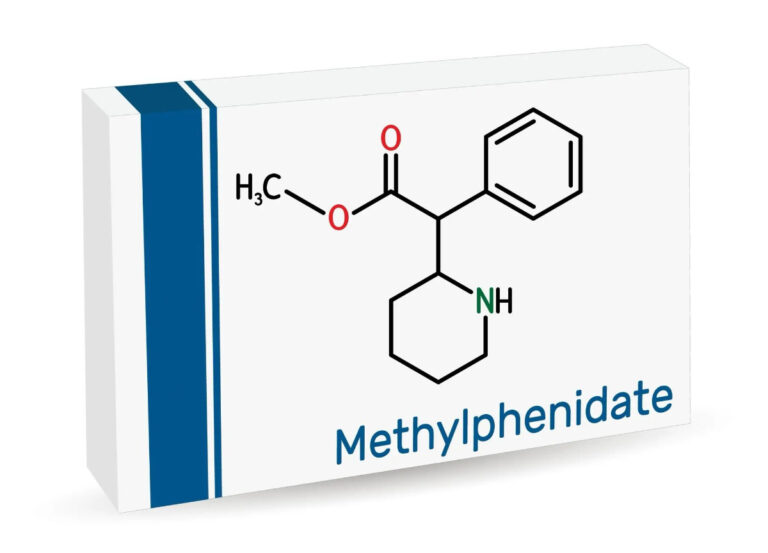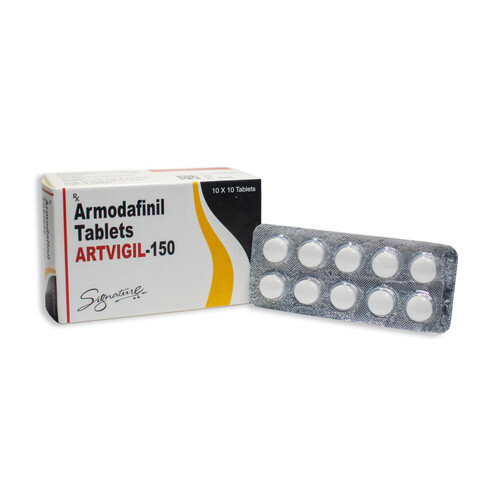Modafinil’s Impact on Memory and Learning
Modafinil is a wakefulness-promoting medication primarily approved for disorders such as narcolepsy, obstructive sleep apnea, and shift work sleep disorder. Beyond its established clinical uses, Modafinil has garnered significant interest as a cognitive enhancer, with research investigating its effects on memory, learning, and executive functions in both healthy individuals and those with cognitive impairments. Its neurochemical action involves increasing dopamine and norepinephrine levels, neurotransmitters essential for cognitive processing. Clinical and experimental studies suggest that Modafinil may improve working memory, episodic memory, and learning, particularly in populations with underlying deficits. However, the magnitude of these effects varies based on factors like individual health status, dosage, and specific cognitive domains evaluated.
Modafinil’s Mechanism of Action
Modafinil’s cognitive effects stem largely from its complex influence on neurotransmitter systems. It acts primarily by inhibiting the reuptake of dopamine and norepinephrine, leading to increased extracellular concentrations of these catecholamines in brain regions critical for cognition, such as the prefrontal cortex and anterior cingulate cortex (Ghahremani et al., 2011; Müller et al., 2004). Dopamine plays a crucial role in associative learning, working memory, and executive control, while norepinephrine modulates attention and arousal.
Unlike classical stimulants, Modafinil has a distinct pharmacological profile with a lower abuse potential. Its action also involves modulation of glutamatergic and GABAergic pathways and activation of hypothalamic arousal systems, contributing to its wake-promoting and cognitive-enhancing effects (Müller et al., 2004; StatPearls, 2025).
Effects on Memory and Learning: Clinical Evidence
Clinical studies have explored Modafinil’s efficacy in enhancing cognitive function, especially in populations experiencing cognitive deficits.
Cognitive Improvement in Psychiatric Conditions
A double-blind, placebo-controlled trial in patients with remitted depression found that a single 200 mg dose of Modafinil significantly improved performance on tests of episodic memory and working memory compared to placebo (Kaser et al., 2016). These cognitive domains are often impaired even after mood symptoms resolve in depression, underscoring Modafinil’s potential therapeutic value for persistent cognitive dysfunction.
Cognitive Benefits in Substance Use Disorders
Modafinil has shown promise in improving learning deficits among methamphetamine-dependent individuals. In a randomized controlled fMRI study, Modafinil enhanced learning performance in these patients, normalizing their performance to levels comparable with healthy controls. Brain imaging revealed increased activation in the anterior cingulate and ventrolateral prefrontal cortices, areas involved in cognitive control and learning (Ghahremani et al., 2011).
Effects in Healthy Adults
In healthy, non-sleep-deprived adults, Modafinil’s effects on cognition are more subtle. Controlled studies have demonstrated modest improvements in working memory tasks, particularly in challenging conditions requiring manipulation of information, but results vary with task type and individual baseline performance (Müller et al., 2004). Such findings suggest Modafinil’s cognitive enhancing effects may be more pronounced under cognitive demand or fatigue.
Insights from Experimental and Neuroimaging Studies
Animal and human experimental studies have provided mechanistic insights into how Modafinil influences cognitive function.
Modafinil’s enhancement of working memory processes involves facilitation of prefrontal cortex activity, partly via catecholaminergic modulation. In humans, pharmacological fMRI studies reveal that Modafinil increases neural activity in brain regions underpinning attention, working memory, and learning (Ghahremani et al., 2011; Müller et al., 2004).
Animal models further support these findings, showing Modafinil’s capacity to enhance synaptic plasticity and neurotransmitter release, which are fundamental for learning and memory consolidation. These experimental data complement clinical observations and help explain Modafinil’s pro-cognitive effects.
Potential Therapeutic Applications
Given its cognitive benefits, Modafinil has been proposed as an adjunctive treatment for cognitive impairments in various neuropsychiatric conditions:
- Depression: To alleviate residual cognitive symptoms post-remission (Kaser et al., 2016).
- Attention Deficit Hyperactivity Disorder (ADHD): Supporting executive function and attention, though more research is needed.
- Substance Use Disorders: Enhancing cognitive control and learning in stimulant dependence to improve therapy outcomes (Ghahremani et al., 2011).
- Age-related Cognitive Decline: Preliminary evidence suggests possible benefits, but conclusive data are lacking.
Despite these promising avenues, Modafinil is not yet approved for these indications, and clinical use outside wakefulness disorders remains off-label, requiring careful consideration.
Safety and Ethical Considerations
Modafinil is generally considered safe and well tolerated, with the most common side effects being headache, nausea, anxiety, and insomnia. Its abuse potential is low compared to other stimulants, contributing to its favorable safety profile (FDA, 2015).
However, serious adverse reactions such as rare but severe skin rashes (including Stevens-Johnson syndrome), hypersensitivity, and psychiatric symptoms have been reported, necessitating monitoring (FDA, 2015).
Long-term safety data for healthy individuals using Modafinil for cognitive enhancement are limited. Ethical concerns include the fairness of cognitive enhancement, potential pressure for use in competitive settings, and the implications of widespread off-label use.
Conclusion
Current scientific evidence supports that Modafinil can positively impact memory and learning through its action on key neurotransmitter systems and neural circuits involved in cognition. Clinical trials confirm cognitive improvements, especially in individuals with cognitive impairments or fatigue, while effects in healthy adults tend to be moderate and task-specific. The drug’s safety profile is favorable but requires ongoing vigilance for rare adverse effects.
Modafinil holds promise as a therapeutic adjunct for cognitive dysfunction in psychiatric and neurological disorders, although further long-term studies are necessary to fully understand its efficacy, safety, and ethical implications when used for cognitive enhancement.
References
- U.S. Food and Drug Administration. (2015). PROVIGIL® (modafinil) tablets, for oral use, C-IV [prescribing information]. U.S. Department of Health and Human Services. https://www.accessdata.fda.gov/drugsatfda_docs/label/2015/020717s037s038lbl.pdf
- Greenblatt, K., & Adams, N. (2025). Modafinil. In StatPearls. StatPearls Publishing. https://www.ncbi.nlm.nih.gov/books/NBK531476/
- Müller, U., Steffenhagen, N., Regenthal, R., & Bublak, P. (2004). Effects of modafinil on working memory processes in humans. Psychopharmacology, 177(1–2), 161–169. https://doi.org/10.1007/s00213-004-1926-3
- Kaser, M., Deakin, J. B., Michael, A., Zapata, C., Bansal, R., Ryan, D., Cormack, F., Rowe, J. B., & Sahakian, B. J. (2017). Modafinil improves episodic memory and working memory cognition in patients with remitted depression: A double-blind, randomized, placebo-controlled study. Biological Psychiatry: Cognitive Neuroscience and Neuroimaging, 2(2), 115–122. https://doi.org/10.1016/j.bpsc.2016.11.009
- Ghahremani, D. G., Tabibnia, G., Monterosso, J., Hellemann, G., Poldrack, R. A., & London, E. D. (2011). Effect of modafinil on learning and task-related brain activity in methamphetamine-dependent and healthy individuals. Neuropsychopharmacology, 36(5), 950–959. https://doi.org/10.1038/npp.2010.233








